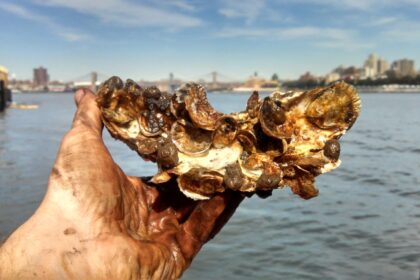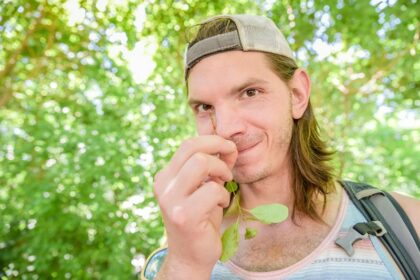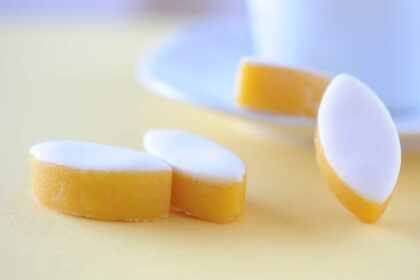

Disclosure: This post is part of a local trips series and giveaway I’m doing in partnership with Amazon for the launch of their new hand-curated hotel booking website, Amazon Destinations. Amazon compensated me and provided my travel and accommodations in exchange for writing about my travels. Regardless, everything I have said in the post reflects my honest observations and opinions from my solo road trip.
Despite the walkable accessibility of my hotel, the Woodstock Inn & Resort, to the local historic district and attractions like the Billings Farm & Museum and the Marsh-Billings-Rockefeller National Historical Park, I find myself driving through Vermont’s back roads. Pavement turns to gravel and dirt, as the 18th and 19th century buildings of the village fade away, until it’s only woodland and farms.
Not surprisingly, there are many worthwhile farms to visit in Vermont, known for its high quality maple syrup, cheese, chocolate, coffee and wine; however, there’s one family-owned property truly offering an immersive and delicious experience: Sugarbush Farm. As the 550-acre (223-hectare) farm is home to 6,000 maple trees, and a large group of trees used for maple syrup production is called a “sugarbush,” it’s a pertinent name.
While the roads to get there are bumpy, I love the quiet, countryside feel. I barely see any other drivers, and when I do they’re slow and courteous, the exact opposite of those I encounter driving in my home of Brooklyn. Finally, the GPS leads me down the aptly-named Sugarbush Farm Road, until I’m parked in a giant dirt lot littered with old farming equipment.



Sugarbush Farm History
The place has a weathered feel to it, the kind that lets you know there’s some history to where you are. And there is, as Sugarbush Farm has been in operation since 1945, although the land it sits on has been farmed since 1796. Jack and Marion Ayres — the current owner Betsy Luce’s parents — started Sugarbush with 10 cows for shipping milk to the local creamery, also making cheese in 1956, wrapping them in wax to help preserve them.
A Walk In The Woods
My mouth salivates at the thought of sampling local cheeses, but first there’s something behind me in the parking lot that catches my eye. A sign says Maple Walk, advertising a 15-minute up and downhill stroll to get a glimpse of how sap tubing works firsthand.
I enter the woodland, coming to a small Maple Chapel on my right, stuffed cow dolls welcoming me into the homey space. A sign also tells me what wildlife is possible to see, such as frogs, deer, raccoons, rabbits, turtles and fox. To my left I see trees strung together with thin tubes, which drips maple sap into a 16-quart pail out of small tap holes in the trees drilled by the producers. Apparently, up to 100 trees can be connected this way, and as the process is done only once per year and takes only 7% of the tree’s sap it’s not harmful.



An Education In Cheese
I do a bit of the path, the maple trees providing shade from the sun, but soon the flies get to me — apparently I’m not the only one who loves maple syrup — and my stomach rumbles. Crossing the street I spy horses, tractors and sheds on one side, with the main visitor building on the other. Entering, I’m immediately greeted by an enthusiastic female employee, Jill*, who stops me in front of their tasting table. She hands me an impressive list of 15 waxed cheeses I can try — free of charge — with some options being a low fat Vermont cheese, a variety of aged cheddars ranging from 6 months to 6 years, a sage cheddar, smoked cheese with bacon, bleu cheese, horseradish sharp cheddar, and jalapeno and cayenne pepper cheddar.
While I try a number of the options, the most interesting experience is understanding the aging process of the cheddar. The more a cheese is aged, the sharper it will be, a concept that’s hard to understand unless your palate is involved.
Jill explains that they don’t make their own cheese, but milk their own cows and allow the local co-ops to carry out the process of pasteurizing or heat treating, adding a starter culture to help create the curds, coagulation to help separate the curds for the liquid whey, cheddaring, cutting, salting and pressing the curds. When it comes to wrapping and aging the finished product, however, that’s all done at Sugarbush.

Interestingly, the different starter culture is a big part of what gives the cheese its personality. Moreover, it develops the cheeses acidity, with the amount of culture and length of time left to ripen the milk determining the taste. Aging is also an important part of this, as mentioned above, although keep in mind its best to age a cheese slowly, at about 36 degrees Fahrenheit (2.2 degrees Celsius) , and not all cheeses are meant to be aged alike.
Exploring Vermont Through The Palate
Just as I’m starting to digest all this cheese information — and the cheese itself — it’s on to a structured maple syrup tasting. Jill displays a wooden case holding four maple syrups, all very different in color. She explains the lighter the maple syrup, the less maple-y the flavor, and that syrup made earlier in the season is typically lighter.

“As the weather gets warmer and the trees get closer to putting forth their buds, the syrup becomes a darker color and has a stronger maple flavor. No one grade is better than the other. It’s just your personal preference.”
We begin with a golden “Delicate Taste,” which I think tastes pretty darn maple-y; that is, until I try the amber “Rich Taste,” which is much closer to the classic flavor. Next, a dark “Robust Taste” is, well, more robust, while the final very dark “Strongest Taste” is extremely bold and sinfully intoxicating. I would happily drench my French Toast in any — or all of them at once!
In their farm shop, the free samples continue. Along with unique maple products like Maple Horseradish Mustard and Maple Cotton Candy, there’s the quintessential country fare like homemade jams and spreads, raw honeys, organic coffees, local chocolate, and even some interesting beer and wine jellies. One could literally spend hours eating their way through the small shop, savoring a true taste of Vermont.
A Visit To The Sugar House
The visit doesn’t end here, though, as walking further from the parking lot is the sugar house. Before I enter, however, I’m stopped in my tracks by the beautiful view, the house sitting on the edge of a cliff that slopes down into a valley, before meeting the surrounding mountains. At the Sugar House I’m literally standing above the trees. I feel like queen of the maples.

Until I realize I still have much to learn about these sugary trees.
There’s no one inside the Sugar House, just a giant piece of equipment used to turn maple sap into maple syrup. The machine is an evaporator, which boils the sap down into the gooey pancake topping. Amazingly, about 15,000 gallons (56,781 liters) of sap is necessary before the boiling can begin.
During busy maple syrup season, it’s not uncommon for the sugar house to become a kind of community gathering place, as maple syrup makers will spend almost all of their time here.

Making maple syrup is hard work, but it’s worth it to have a natural, delicious local product so good it’s almost synonymous with Vermont.
Sure, you can try Vermont syrups and cheeses almost anywhere in the state; however, at Sugarbush Farm you don’t just taste these products, you experience them, all under the guidance of a local family who’s been doing this for three generations. Plus, you’ll be supporting local business and enjoying the nature through all of your senses.
Sugarbush Farm, 591 Sugarbush Farm Road, Woodstock, Vermont 05091; (802) 457-1757
Have you visited Sugarbush Farm or another local Vermont farm you recommend? Please share in the comments below.
Story & photos by Jessica Festa
Also Check Out:
Traveler’s Guide To Regional Delicacies And Local Culture In Thailand
Sips & Suds: 12 Best Unusual Beer Experiences In The USA
Caribbean Beauty In Israel’s Desert Dead Sea Region
Jessica Festa
Latest posts by Jessica Festa (see all)
- A Culturally-Immersive Adventure In Mongolia’s Altai Mountains - Jul 8, 2023
- This Recipe Sharing Platform Supports Women In The Culinary Industry (Labneh Recipe Included!) - Nov 5, 2020
- Hiking The Mohare Danda Community Eco-Trek In Nepal - Jun 3, 2020
- 6 Important Questions For Choosing A Responsible Yoga Retreat - May 18, 2020
- How To Create & Grow A Profitable Blogging Business (Ethically) - Jan 18, 2020




